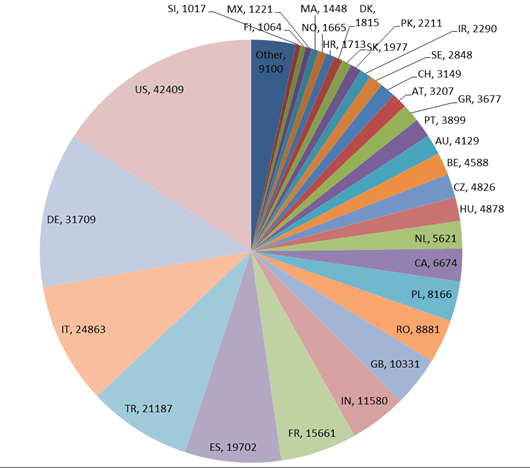Bitdefender security researchers work with the Romanian National Police to look at some servers used by cyber criminals to handle the ICEPOL Ransomware police ransomware. These servers are located in Bucharest, and were seized by the authorities last year.
Servers in Romania were just part of a malicious distribution system that consisted of dozens of such servers. Servers in Romania were communicating with the same circuit servers in the Netherlands before they closed.
Η Bitdefender and police analyzed the operation of the ransomware distribution servers between May 1 and September 26, 2013. During this period, the archives καταγραφής έδειξαν πάνω από 267.000 επιτυχείς μολύνσεις, οι περισσότερες εκ των οποίων ήταν στις ΗΠΑ (42.400), στη Germany (31.700) and Italy (24.800). Greece, in proportion to its population, was hit hard by this infection. 3.677 infections are not few.

It is worth noting that when the Romanian authorities shut down the servers, the command unit and control he found refuge in Germany.
"Her results researchto him ICEPOL Ransomware "came from the cooperation of various law enforcement agencies and third-party suppliers," said the head of the Romanian Police's Cybercrime Service.
"Although complicated, we have had very good results so far and will continue to prosecute cybercrime, even if the lack of jurisdiction sometimes slows things down."
As far as the profits of the criminals are concerned, the logs from the seized computers showed that they managed to collect more than 158.000 dollars.






